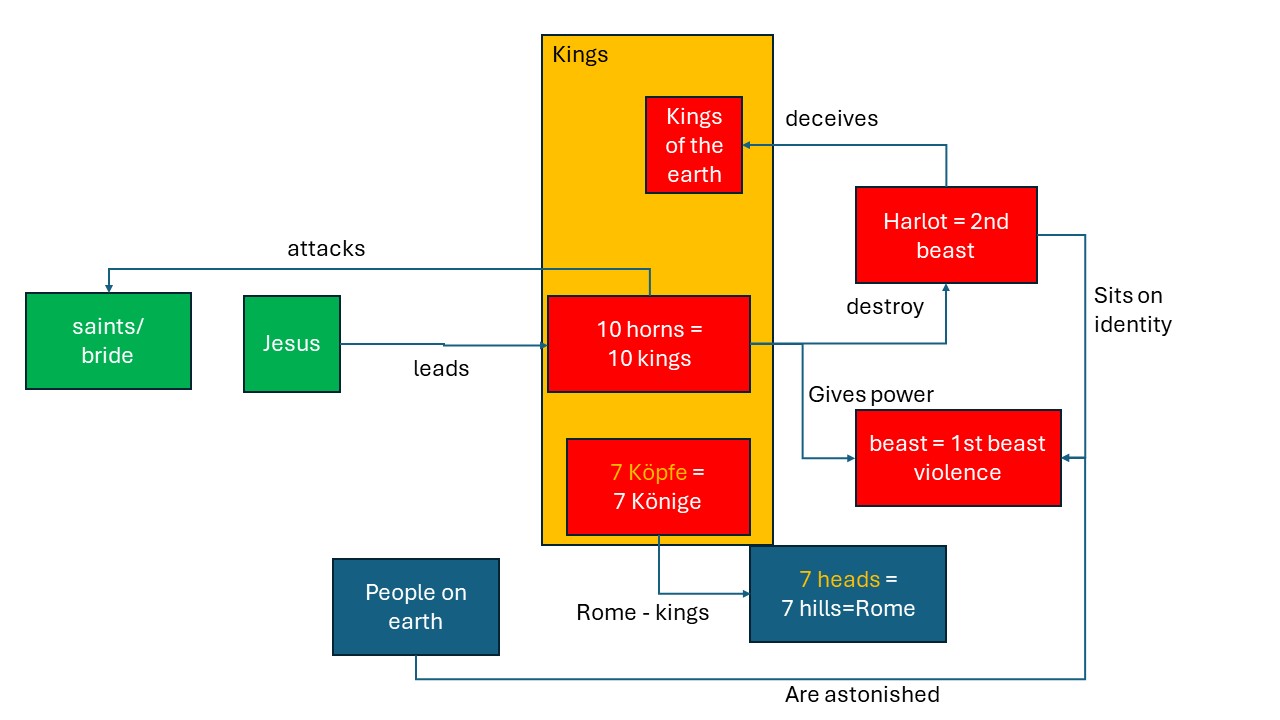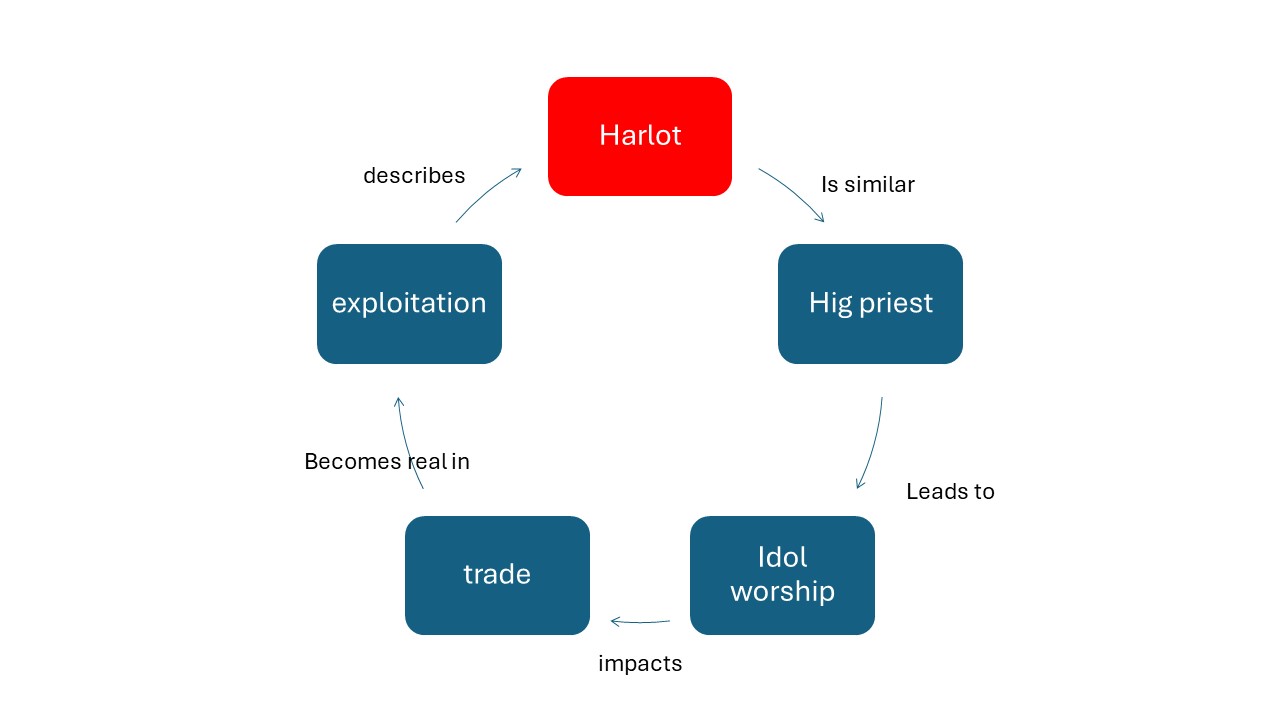The harlot (Ch. 17-19)
Chapter 17, 18 and 19.
The mystery of the harlot?
The story is now a supplement to the bowls (as we also had with the seals and the trumpets). It magnifies what is the main theme of God’s wrath.This is nothing new, but it summarizes all the evil we had before in one complex picture: The harlot who is Babel and who sits on a beast.
The harlot is described as manipulating the ruler of the earth and killing the saints. The harlot sits on a beast that is later on staging war against Jesus and the saints.
The beast itself is described with control over the kings of the earth.

This seems an unstoppable force against the saints. But here comes the ironie: The beast (the first beast from chapter 13 which was portrayed there as invincible) is far from invincible but mocked as unreliable in comparison to God.
Furthermore the beast and the harlot will not succeed to overcome the saints but will be destroyed by the kings who gave all their power to the beast. How can this happen? Because God made it so. We will see this later, why.
The harlot herself is the counterpart of the Bride of Christ (the Church) and represents primarily economic and financial power. But there is more. The harlot looks very much like the bride on the outside and could be the host for Christians who wanted to take the easy way out and go with the flow (and received the mark of the beast).
The harlot influenced the rulers of this world to bring prosperity (so be careful if this is your primary goal as a Christian).
The impact and judgment of the harlot
The harlot, even though she looks like the church from the outside, is a fierce enemy of the church and its witnesses and causes havoc. On closer inspection, the harlot is the cause of the third seal: Hunger, based on economic injustice, but ensuring the availability of luxury goods and providing for the rich despite the suffering of the masses. People are considered materials like other resources.
The harlot promises prosperity but despises people. There is nothing wrong with prosperity which also God can give, but if this gift is more important than God, we are citizens of the harlot Babel and not of Jerusalem.
To be the perfect church (church that focuses on blessings and prosperity and not on uncomfortable witness and martyrdom) is also the destiny of the harlot: While the beast tries to attack the church, Jesus intervenes and instead of the church, the harlot is the target. The kings, as representatives of the beast, bring judgment on the harlot.
The harlot is proud and considers herself untouchable, so her judgment will come quickly, as it did over the historical Babel. Babel will be judged with the double measure, meaning that she will suffer exactly what she has distributed to others.

Why such long emphasis on the description of the harlot (more than two chapters)? Because we are called out of the comfort into justice. If we are part of the harlot, it will lead to idolatry (in the Old Testament idolatry is linked to trade), and this will change our behaviour that we dont love but exploit people.
And now?
The harlot has been judged, so now the Bride of Christ is ready for the wedding. The Church is now ready to see her Bridegroom. But first He brings judgment on the rest of the evil trinity.
He comes with a sword out of His mouth and He judges each one alone (the angels are only there to catch the devil and the false prophet). This is not a battle, but rather a courtroom. Jesus brings the final judgment.